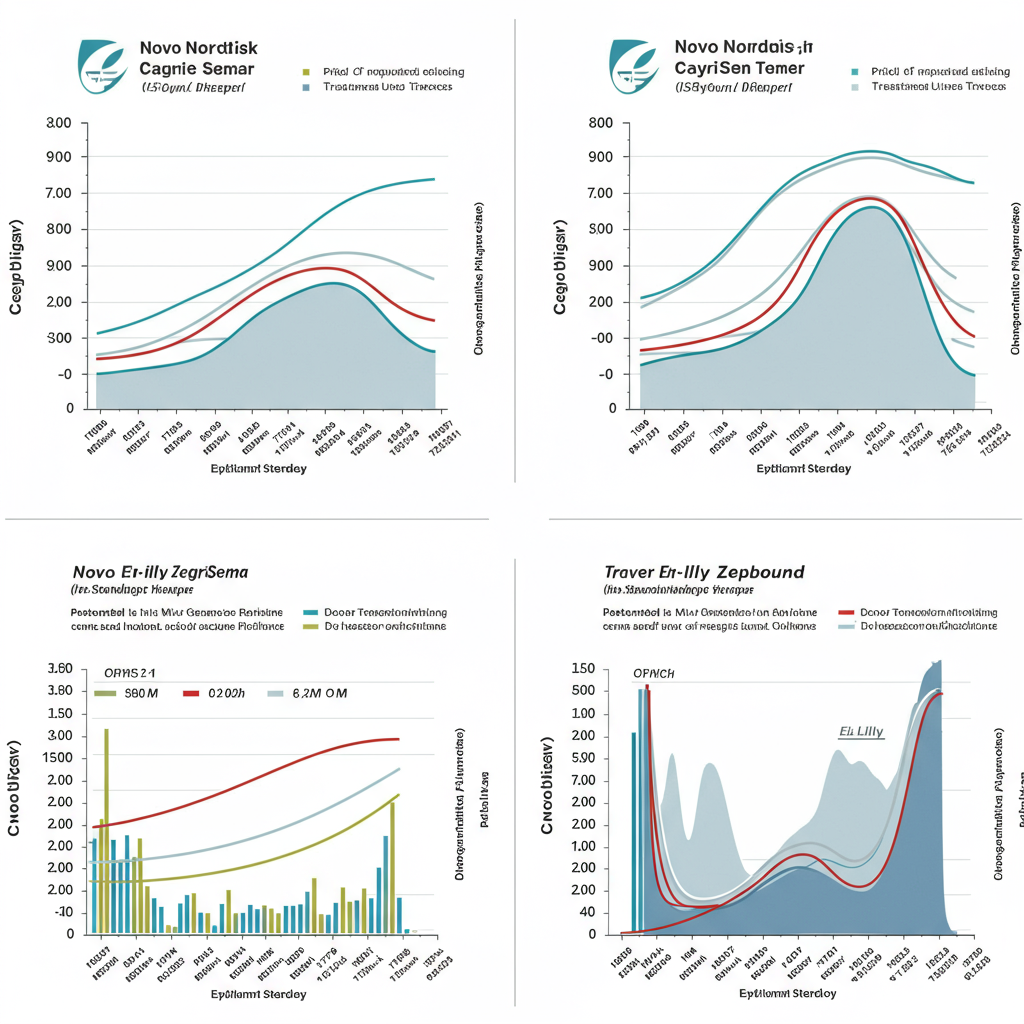CHICAGO — New late-stage clinical trial data for Novo Nordisk’s experimental obesity drug candidate, CagriSema, indicate its performance on key metrics like safety and efficacy appears comparable to Eli Lilly’s market-leading drug, Zepbound (tirzepatide). While demonstrating substantial weight loss, these results have reportedly fallen short of some investor expectations for a significant edge over existing treatments.
CagriSema is a combination therapy that pairs Novo Nordisk’s established GLP-1 agonist semaglutide (the active ingredient in Wegovy and Ozempic) with cagrilintide, a novel amylin analog. Amylin is a hormone involved in blood sugar control and appetite regulation. This dual mechanism was hoped to potentially offer greater weight loss compared to GLP-1 agonists alone.
In results from a 68-week Phase 3 trial, participants treated with CagriSema achieved an average weight loss of approximately 20% to 22.7%. This level of reduction is indeed substantial and similar to the impressive weight loss figures observed in clinical studies for Eli Lilly’s Zepbound.
Initial data also suggest that the rate of weight loss observed in the study began to plateau towards the end of the 68-week period. This finding raises questions about the potential for patients to achieve significantly more weight loss over longer treatment durations, a factor Novo Nordisk is planning to explore in an extended study.
Novo’s Confidence Amidst Investor Disappointment
The comparability to Zepbound, rather than a significant leap forward, has led to disappointment among some investors who had hoped CagriSema would emerge as a clear standout in the rapidly growing obesity market, projected to reach $100 billion to $130 billion annually by 2030. This market is currently dominated by Novo Nordisk with Wegovy and Eli Lilly with Zepbound.
Despite the market reaction, Novo Nordisk executives have publicly expressed continued encouragement regarding CagriSema’s potential. They point to factors like a flexible dosing protocol in the initial trial, which allowed patients to reduce doses due to side effects, potentially impacting the overall average weight loss. Novo suggests that patients who remained on higher doses did not show the same plateauing effect.
The Intense Obesity Drug Race
The landscape for obesity treatments is becoming increasingly competitive. Eli Lilly’s Zepbound, a dual GLP-1/GIP agonist, is seen by many as having an edge in weight loss compared to Novo Nordisk’s single-target GLP-1, Wegovy, based on existing trial data. Lilly is also progressing its potential next-generation therapy, retatrutide (a triple GLP-1, GIP, and glucagon agonist), which is in late-stage testing and considered highly promising.
Novo Nordisk’s strategic commitment to CagriSema remains strong, viewing it as crucial for defending its market share against Lilly’s ascendance. This comes amidst a period where Novo’s cautious approach in the past may have cost it an early lead in developing multi-agonist therapies.
Future Plans and Broader Pipeline
Looking ahead, Novo Nordisk is planning a new, larger Phase 3 trial (REDEFINE 1) for CagriSema, set to begin in early 2025. This trial will be longer and will incorporate a more personalized dosing strategy with increased focus on dose escalation. The company aims to submit CagriSema for regulatory approval by mid-2026. Another Phase 3 trial (REDEFINE 2) is also underway for obese or overweight patients with type 2 diabetes.
The development pipeline in the obesity space extends beyond these two giants. Companies are exploring various mechanisms, including other amylin analogs (like AbbVie’s recently licensed GUBamy), different combinations (Amgen’s Maritide, a GLP-1/GIP inhibitor nearing Phase 2 data), oral formulations (Lilly, Pfizer, Roche, etc.), therapies aimed at preserving muscle mass during weight loss, and alternative targets like the CB1 receptor.
While CagriSema’s initial Phase 3 results position it as a potent option comparable to the best available treatment, the path to market will involve demonstrating its value proposition in a crowded and rapidly evolving therapeutic area. Novo Nordisk is clearly betting on its refined trial strategy to showcase CagriSema’s full potential and secure its place in the future of obesity care.

